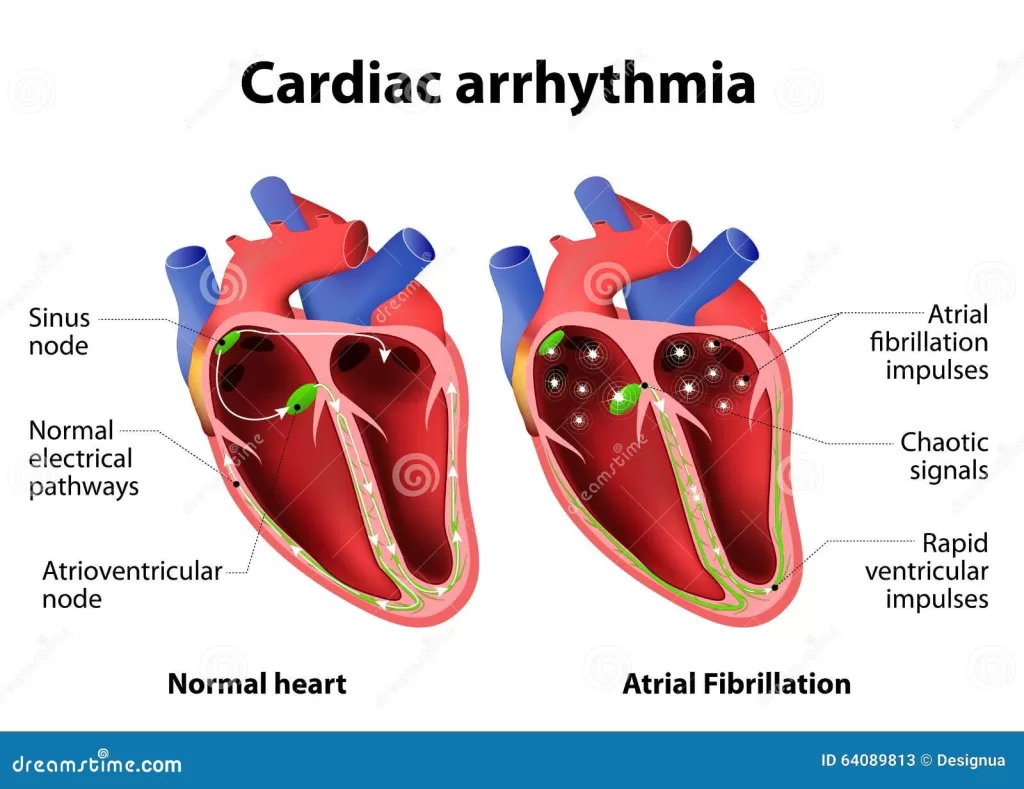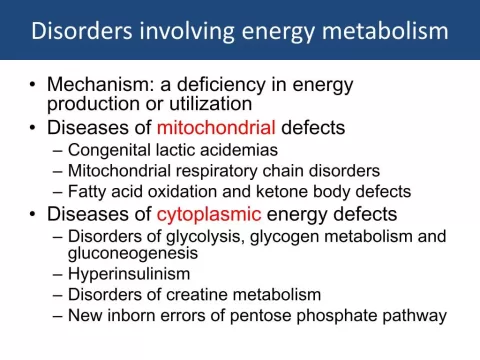Arrhythmias, commonly known as heart rhythm problems, are conditions that disrupt the normal beating pattern of the heart, causing it to beat too fast, too slowly, or irregularly. These heart rhythm issues can range from benign to life-threatening, with serious implications such as stroke and heart failure. Understanding arrhythmias is essential, especially as recent advancements in research and treatment shed light on their management and implications. Notably, conditions like atrial fibrillation and bradyarrhythmias highlight the diverse nature of these disorders, each requiring tailored approaches for effective treatment. Furthermore, emerging therapies, including gene therapy for arrhythmias, are paving the way for innovative solutions to combat these complex health challenges.
Heart rhythm disturbances, also referred to as arrhythmias, encompass a variety of irregularities in the heartbeat that can significantly impact cardiovascular health. These abnormalities can manifest as tachycardia, where the heart beats excessively fast, or bradycardia, characterized by an abnormally slow heartbeat. Understanding these variations is crucial, particularly as they relate to common conditions like atrial fibrillation. Additionally, factors such as sleep apnea have been linked to these heart issues, revealing the multifaceted nature of their causes and consequences. With ongoing research into treatments like gene therapy, the landscape of managing these heart rhythm problems continues to evolve, underscoring the importance of awareness and education in this field.
Understanding the Basics of Arrhythmias
Arrhythmias, commonly referred to as heart rhythm problems, encompass a range of conditions where the heart beats irregularly, either too fast or too slow. These disturbances can stem from various causes, including heart disease, stress, or lifestyle choices. It is essential for individuals to comprehend the basics of arrhythmias to recognize symptoms early and seek appropriate treatment. By understanding how the heart’s electrical system functions, patients can better appreciate the implications of these heart rhythm problems.
Moreover, distinguishing between different types of arrhythmias is crucial for effective diagnosis and management. For instance, some arrhythmias, such as sinus arrhythmia, are typically benign and linked to the respiratory cycle. In contrast, more serious conditions like atrial fibrillation (AFib) can lead to severe complications, including stroke. Educational resources and public awareness campaigns can empower patients to understand these differences and encourage proactive health management.
The Role of Gene Therapy in Arrhythmias
Recent advances in gene therapy have shown promising potential in treating arrhythmias, particularly in patients at high risk for severe heart rhythm problems. Researchers have identified specific genes that regulate heart rhythm and are exploring how these can be modified or replaced using viral vectors. This innovative approach seeks to restore normal electrical conduction within the heart, offering hope for individuals suffering from life-threatening arrhythmias.
As the field of gene therapy evolves, it presents new opportunities for tailored treatments. For patients with inherited arrhythmias, genetic testing can provide insights into their specific condition, paving the way for personalized interventions. This approach not only enhances treatment efficacy but also minimizes potential side effects, making it a significant development in the management of heart rhythm disorders.
Sleep Apnea’s Impact on Arrhythmias
The connection between sleep apnea and arrhythmias has gained attention in recent research, revealing that individuals with sleep apnea are at an increased risk of developing heart rhythm problems, particularly bradyarrhythmias. Sleep apnea causes repeated interruptions in breathing during sleep, which can lead to fluctuations in oxygen levels and increased stress on the heart. These physiological changes may trigger or exacerbate existing arrhythmias, highlighting the importance of addressing sleep health in patients with heart rhythm disorders.
Comprehensive treatment strategies that incorporate sleep apnea management can significantly improve outcomes for those suffering from arrhythmias. Continuous Positive Airway Pressure (CPAP) therapy, for instance, has shown effectiveness in alleviating the symptoms of sleep apnea and can contribute to stabilizing heart rhythms. By educating patients on the relationship between sleep disorders and arrhythmias, healthcare providers can promote better overall cardiovascular health.
Identifying Symptoms and Causes of Arrhythmias
Recognizing the symptoms of arrhythmias is critical for early intervention. Common signs include palpitations, dizziness, and shortness of breath, which can vary widely among individuals. Understanding the potential causes—ranging from stress and anxiety to underlying heart disease and lifestyle factors—can help patients identify when to seek medical attention. The interplay between these causes and symptoms emphasizes the need for a thorough evaluation by healthcare professionals.
Furthermore, lifestyle choices such as excessive caffeine or alcohol consumption can exacerbate arrhythmia symptoms. Therefore, promoting awareness about these triggers is essential for effective management. By encouraging patients to adopt healthier habits and avoid known risk factors, healthcare providers can play a significant role in reducing the occurrence and severity of heart rhythm problems.
The Importance of Regular Heart Health Check-ups
Regular health check-ups are vital for individuals with or at risk of developing arrhythmias. During these appointments, healthcare providers can monitor heart rhythm, assess risk factors, and implement preventative measures. This proactive approach not only helps in early detection of potential heart rhythm problems but also fosters a partnership between patients and healthcare providers in managing their heart health.
Additionally, public awareness campaigns, especially during National Heart Month, emphasize the importance of regular screenings and education about heart rhythm disorders. By participating in community health initiatives, individuals can learn more about the symptoms of arrhythmias and the significance of timely medical intervention. Such efforts are essential in empowering patients to take charge of their heart health and reduce the risks associated with untreated arrhythmias.
Frequently Asked Questions
What are arrhythmias and how do they affect heart health?
Arrhythmias are conditions characterized by abnormal heart rhythms, which can be too fast, too slow, or irregular. These heart rhythm problems can lead to serious health risks such as stroke and heart failure, making it crucial to recognize and understand their implications for overall heart health.
How does sleep apnea contribute to arrhythmias like bradyarrhythmias?
Sleep apnea, a condition where breathing is repeatedly interrupted during sleep, is linked to arrhythmias, particularly bradyarrhythmias. This correlation arises from the stress placed on the heart during breathing interruptions, which can exacerbate slow heart rhythms and lead to further complications.
What is the difference between atrial fibrillation and sinus arrhythmia?
Atrial fibrillation (AFib) is a serious type of arrhythmia that can lead to complications like stroke, whereas sinus arrhythmia is often a benign condition associated with the respiratory cycle. Understanding this distinction is important for effective management of heart rhythm problems.
How is gene therapy being utilized to treat life-threatening arrhythmias?
Recent research has shown that gene therapy may offer a promising approach to treating life-threatening arrhythmias. This innovative method involves using a small gene that can restore the heart’s electrical rhythms, potentially transforming treatment options for patients at risk of severe heart rhythm problems.
What are the common symptoms of heart rhythm problems like arrhythmias?
Symptoms of arrhythmias can vary widely and may include palpitations, dizziness, shortness of breath, or even fainting. Recognizing these symptoms is crucial for seeking timely medical intervention and preventing serious complications associated with untreated heart rhythm disorders.
| Key Point | Details |
|---|---|
| Definition of Arrhythmias | Arrhythmias are heart rhythm problems where the heart beats too fast, too slowly, or irregularly. |
| Health Risks | Some arrhythmias can lead to serious health issues such as stroke and heart failure. |
| Recent Research Developments | Advancements in genetic research and gene therapy offer new treatment options for arrhythmias. |
| Connection to Sleep Apnea | Sleep apnea can exacerbate arrhythmias, especially bradyarrhythmias. |
| Types of Arrhythmias | Differentiating between types like sinus arrhythmia and atrial fibrillation is crucial for management. |
| National Heart Month | February is dedicated to heart health awareness, focusing on arrhythmias and regular screenings. |
| Symptoms and Causes | Symptoms vary and can include palpitations, dizziness, and shortness of breath. Causes include stress, heart disease, and lifestyle choices. |
| Consequences of Irregular Heartbeat | Chronic arrhythmias can lead to serious complications like heart failure and increased risk of stroke. |
Summary
Arrhythmias represent a significant category of heart rhythm disorders that require a comprehensive understanding and proactive management. These conditions can manifest in various forms, with some being benign while others pose serious health risks. Recent advancements in research, including genetic studies and the implications of sleep apnea, highlight the importance of continuous learning and awareness. By differentiating between types of arrhythmias and recognizing associated symptoms and causes, individuals can make informed decisions regarding their heart health. Staying informed about these developments is crucial for effectively managing the complexities associated with arrhythmias.
The content provided on this blog (e.g., symptom descriptions, health tips, or general advice) is for informational purposes only and is not a substitute for professional medical advice, diagnosis, or treatment. Always seek the guidance of your physician or other qualified healthcare provider with any questions you may have regarding a medical condition. Never disregard professional medical advice or delay seeking it because of something you have read on this website. If you believe you may have a medical emergency, call your doctor or emergency services immediately. Reliance on any information provided by this blog is solely at your own risk.





